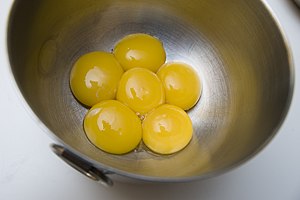Experts claim these cocktails pose a high risk to our health and even say they should be banned. We take a look at the arguments for and against the energy drinks.
According to the motto, Red Bull gives you wings. But what exactly more Red Bull and other energy drinks? Questions have been raised about the safety of energy drinks since we learned of its caffeine content. And, despite claims to improve performance, stimulate metabolism and increase concentration, the sale of Red Bull is not allowed in Denmark, Norway, France and Uruguay. So why is he, and other energy drinks, so readily available in Britain?
International flavor
This is not to underestimate the success of Red Bull. In 2005 more than 2.5 million cans of the high-energy drink, called "Porsche refreshments," is consumed in more than 130 countries. Despite these impressive statistics, doubts have been raised by some health experts about whether the drink is safe.
That fuelled speculation has been informed of a Red Bull 'ban' in a handful of countries. "Red Bull has not been banned in any country," said a spokesman for the company. "There are places where it has not been approved yet. It takes a long time to get a new product with special ingredients in a complex composition through all the official channels."
It should also be noted that Red Bull is not the only product that has struggled to find its way on the shelves of these countries. For example, France has refused to authorise some cereals fortified with vitamin made by Kellogg's.
Burden of Red Bull?
Critics of the drink often point to the Red Bull caffeine content, and only recently it was linked to the death of a 18-year-old Irish basketball player who died apparently after sharing four cans of the drink with friends. However, a can of Red Bull contains 80mg of caffeine - the same as a half a cup of coffee, and an investigation determined that the child's death was caused by sudden death syndrome in adults.
In 2001, the National Food Administration of Sweden issued a public warning about precautionary Red Bull after the deaths of three people who are believed to have consumed the drink, shortly before his death.
"No authority has discovered or proven to be an unhealthy or in the effect of Red Bull," says company spokesperson. "We could only have such worldwide sales because health authorities have concluded that it is safe to consume. Nobody has ever proved a link between Red Bull and harmful effects."
After scientific research independent from Britain Food Standards Agency considers energy drinks like Red Bull are as safe as any other drink for adults to consume in moderation.
"Red Bull has been licensed in the UK, as it has proven to be safe," says Richard Laming of the British Soft Drinks Association. "The label says it is high in caffeine and always advise all kinds of food and beverages should be consumed in the context of a balanced diet."
Caffeine cocktail
"The bottom line is the Red Bull caffeine content," says Dr Frankie Phillips of the British Dietetic Association. "There is concern about the effect of high intake of caffeine may have on the people who are sensitive to it," he says.
"The energy drink Red Bull, as it could affect the heart rate, blood pressure and mood, if you are sensitive to caffeine. Therefore drinks with caffeine can be potentially dangerous for these people."
"Caffeine can disrupt sleep patterns and lack of rest quality can affect their general welfare too," he adds. "Red Bull also has a high content of calories and little nutritional value."
Another issue with his Red Bull is "launching" cocktail of caffeine with taurine - an amino acid naturally - and a carbohydrate called glucuronolactone. "Nobody knows what the impact of the combination of these three components may have on the body," says Dr. Phillips. "Individually caffeine, taurine and glucuronolactone are safe, but it is unclear if they can have a different reaction when combined together."
However, in 2001, the Food Standards Agency concluded: "There is sufficient evidence to enable the setting of ceilings security levels taurine and glucuronolactone in energy drinks or support a ban on the use these ingredients. "
The clubber of election
Despite being without alcohol, energy drinks are popular in clubs as a mixer to keep the animals go party all night long. It is a matter of concern if clubbers drinking can extend their time with 'Red Bull cocktails' says Frank Soodeen Alcohol Concern. "We are concerned that if consumers are the combination of stimulant drinks with alcohol drinking to increase their experience - especially if this means drinking more than you would normally be able to," he says. One study found apparently mixing alcohol with energy drinks can mask the effect alcohol. In other words, people can often feel less drunk than they are in reality.
The spokesman for Red Bull said: "There is no reason why Red Bull, like any other drink, should not be mixed with alcohol as long as people do not underestimate that alcohol consumption can affect their physical and mental activities. Network Bull is not designed to counteract this. Excessive consumption of alcohol can have adverse effects on human health and behavior, but it must be clear that this is due to the alcoholic beverage - not the mixer. "
Should you or not?
Red Bull is the first to admit that this is not a shot of caffeine sensitive. Pregnant women and children would also be wise to stay clear. "Because of the high acidity and sugar content in soft drinks are not energy dietitians recommend," says Dr. Phillips.
"There is no recommended daily dose of caffeine as you can live perfectly well without it. Should usually drink tea or coffee without any problems, should be sure to have the occasional energy drink"
Extract from http://style.uk.msn.com/wellbeing/healthyeating
 Image via Wikipedia
Image via Wikipedia






